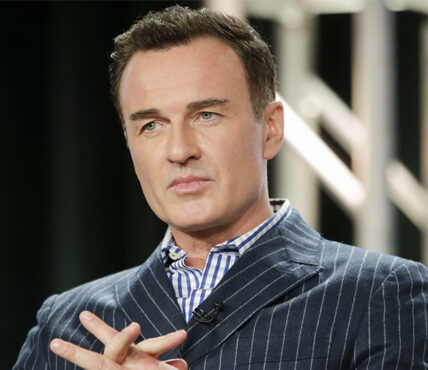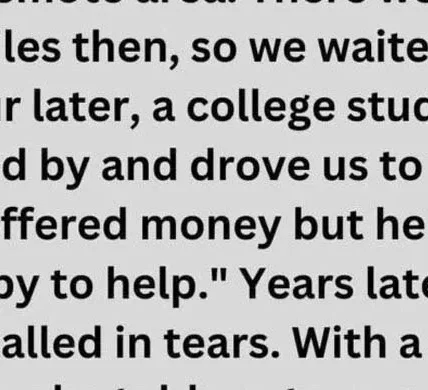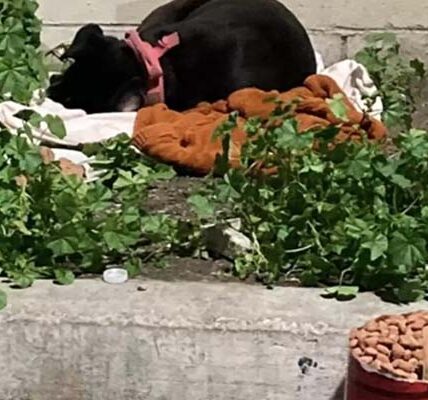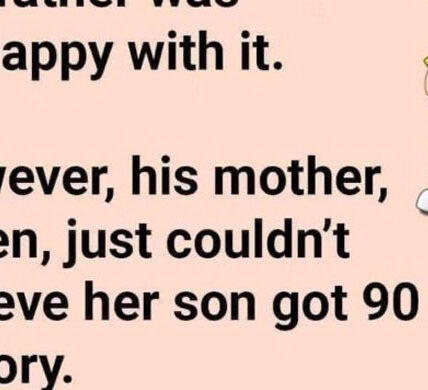I THOUGHT I WAS JUST GETTING A SERVICE DOG—BUT HE GAVE ME MY LIFE BACK
After the accident, everyone kept telling me how “lucky” I was. Lucky to be alive. Lucky to have a good hospital. Lucky to have support.
Some days, it didn’t feel like luck at all.
I hated the wheelchair. I hated the looks from strangers. I hated the heavy silence in my own house where every little thing felt like a reminder of what I’d lost.
When they first suggested a service dog, I laughed it off. A dog? What could a dog do that all these doctors and therapists couldn’t?
But then they introduced me to Axel.
Big, serious-eyed German Shepherd, with a vest that looked way too official for someone who just wanted to hide from the world. He didn’t jump. He didn’t lick. He just sat there, steady, waiting for me to decide.
And somehow, that patience cracked something open.
Training together wasn’t easy. I had a dozen moments where I wanted to quit. But Axel never gave up. Not once. He learned how to pick up things I dropped, how to pull my chair over rough ground, how to brace and balance when I needed help standing.
More importantly, he taught me how to move forward—even when it scared the hell out of me.
Last week, we rolled into the park together for the first time. Sun on my face, Axel at my side, and for the first time since everything changed… I didn’t feel broken.
That’s when a kid ran up to us, pointed at Axel, and said something that nearly brought me to my knees: “Is this your hero?”
The question hit me like a freight train. A hero? Me? The guy who couldn’t even get through a grocery store without feeling like an inconvenience? I mumbled some awkward response about how Axel helped me, but the kid wasn’t listening anymore. His mom tugged him away, apologizing profusely while giving me one of those pitying smiles people seem to save for folks in wheelchairs.
Still, the word stuck in my head: hero. It made no sense. Heroes were brave. They didn’t crumble under pressure or cry in their cars after physical therapy sessions. They didn’t spend hours staring at walls, wondering if life would ever feel normal again.
For the rest of the afternoon, I couldn’t shake the idea. Maybe it wasn’t about being fearless or perfect. Maybe heroes weren’t born—they were built, step by painful step. And maybe Axel wasn’t just helping me survive; maybe he was teaching me how to live again.
A few days later, I decided to take Axel back to the park. This time, though, I had a plan. If people thought I was some kind of hero—or even halfway close—I wanted to prove them right. So I grabbed my phone, loaded up a playlist of upbeat songs, and wheeled myself toward the basketball court near the playground. There was always a pickup game happening there, full of kids laughing and showing off tricks. I used to love basketball before the accident. Back then, I played every chance I got. Now? Well, now I mostly watched from afar, pretending not to care.
Today, though, I parked myself near the sidelines and called Axel to sit beside me. One of the older boys noticed us almost immediately. “Hey, man,” he said, dribbling over. “Cool dog.”
“Thanks,” I replied, trying not to sound as nervous as I felt. “He’s pretty great.”
“What happened to you?” the boy asked bluntly. No filter, just curiosity written all over his face.
“I was in an accident,” I said simply, bracing myself for the usual follow-up questions. Instead, the kid surprised me.
“That sucks,” he said. Then, without missing a beat, “Wanna play?”
My stomach dropped. Play? With these kids who moved so fast they seemed to blur? Who jumped high enough to touch the rim? Who probably forgot more about basketball than I ever knew? But then I glanced down at Axel, who stared back at me with those calm, knowing eyes. Like he was saying, You can do this.
So I nodded. “Yeah, okay. Just don’t expect much.”
Turns over, passes, and layups became our rhythm. Sure, I couldn’t run or jump, but I could pass well enough to keep the ball moving. Whenever I needed a break, Axel stayed by my side, ready to fetch water or nudge me gently back into action. By the end of the hour, I was drenched in sweat and grinning like an idiot. For the first time in ages, I felt part of something bigger than myself.
As the sun dipped lower, one of the younger kids approached me shyly. She held out a crumpled piece of paper. “Can you sign this?” she asked.
“Sign what?” I frowned, confused.
“It’s a drawing,” she explained. “Of you and your dog. You’re both superheroes.”
Something inside me softened. Maybe I wasn’t a hero yet, but maybe I was getting closer.
Over the next few weeks, Axel and I became regular fixtures at the park. People started recognizing us—the guy in the wheelchair with the big German Shepherd who played basketball despite everything. Some days, kids would bring their own dogs to meet Axel. Other days, parents would stop to chat, asking how we managed to stay so positive.
Positive? Honestly, I still struggled. Some nights, I woke up angry, wishing I could turn back time and change everything. But Axel was there, curling up beside my bed, reminding me that tomorrow was another day to try again.
Then came the twist I never saw coming.
One Saturday morning, as we headed to the park, I noticed a commotion near the pond. A small crowd had gathered, pointing and shouting. At first, I thought someone had fallen in, but then I heard barking—a frantic, desperate sound I knew all too well. Pushing through the crowd, I found Axel already there, standing chest-deep in the water, pulling a struggling golden retriever toward shore.
Adrenaline surged through me. Without thinking, I wheeled closer, using my chair’s brakes to stabilize myself as I leaned down to grab the other dog’s collar. Together, Axel and I hauled him onto dry land. Someone called animal control, and within minutes, a relieved owner arrived, tears streaming down her face.
“Oh my God,” she sobbed, hugging her soggy pup. “Thank you. Thank you both.”
The crowd erupted into applause. Strangers patted me on the back, praising Axel for his bravery. That’s when it hit me: this was what being a hero really meant. Not perfection, not invincibility—but showing up, even when you’re scared. Doing what you can, however small, because it matters.
Months passed, and life began to shift in ways I hadn’t expected. The local newspaper wrote a feature about Axel and me, calling us “an inspiration.” Kids started wearing T-shirts with pictures of us playing basketball. Even the city council got involved, installing ramps and accessible paths throughout the park so others like me could join in.
But the biggest change happened inside me. Slowly, I stopped seeing myself as the guy who survived an accident. Instead, I became the guy who kept going—who showed up, who tried, who cared. Axel didn’t just give me my independence back; he reminded me of the strength I already had.
Eventually, I started volunteering at the same training center where I’d met Axel. Helping others find their own courage became my new purpose. Watching someone else bond with their service dog, seeing the spark of hope ignite in their eyes—it was better than any dunk I’d ever made.
Looking back, I realize the accident wasn’t the worst thing that ever happened to me. It was also the best. It led me to Axel, who taught me that heroes aren’t defined by their abilities but by their willingness to keep moving forward. And sometimes, they come in the form of a four-legged friend who refuses to give up on you.
If you’ve been inspired by this story, please share it with someone who needs a reminder that they’re stronger than they think. And don’t forget to hit that like button—it means the world to know this message is reaching hearts. Because everyone deserves a second chance at finding their inner hero.



